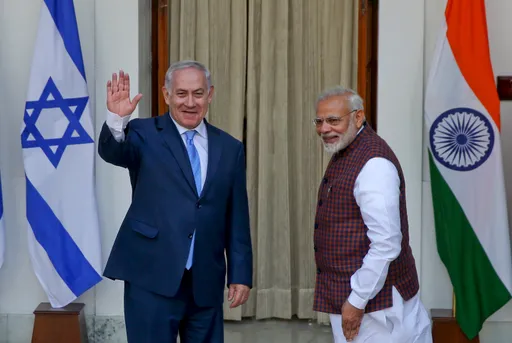The Democratic-led US House of Representatives on Wednesday approved a resolution that would end US support for the Saudi Arabia-led coalition in the war in Yemen, as many lawmakers sought to push President Donald Trump to toughen his policy toward the kingdom.
Passage would mark the first time Congress has relied on the decades-old War Powers Resolution to halt military intervention. It also would set up a potential confrontation with the White House, which has threatened a veto.
The 248-177 vote would not be enough, however, to overcome Trump's promised veto of the war powers resolution.
Democrats and Republicans reintroduced the war powers resolution two weeks ago as a way to send a strong message to Riyadh about the humanitarian disaster in Yemen and condemn the killing of Saudi journalist Jamal Khashoggi.
Lawmakers in both parties are increasingly uneasy over the humanitarian crisis in Yemen and sceptical of the US partnership with the coalition.
"We have helped create, and worsen, the world's largest humanitarian crisis," said Representative Barbara Lee during the debate. "Our involvement in this war, quite frankly, is shameful."
The chairman of the House Foreign Relations Committee, Representative Eliot Engel, said the vote represents "Congress reclaiming its role in foreign policy."
'Not just about Yemen'
Representative Ro Khanna, who drafted the legislation with independent Senator Bernie Sanders of Vermont, said there's an emerging bipartisan alliance that's sceptical of military intervention without congressional oversight.
"It's not just about Yemen. It's about the Congress taking a stand and every future president having to think twice about whether to authorise a military intervention without congressional approval," Khanna said in an interview.
The administration - and many of Trump's fellow Republicans in Congress - said the resolution was inappropriate because US forces had provided aircraft refuelling and other support in the Yemen conflict, not combat troops.
It also said the measure would harm relationships in the region and hurt the US ability to prevent the spread of violence.
What next?
The Senate is expected to vote on the resolution within 30 days.
The outcome of the legislation is uncertain. Republicans control the Senate, 53-47, and a simple majority is needed to pass.
Trump has yet to veto any measures from Congress. If he did veto the Yemen resolution, it's unclear whether lawmakers would have enough support to override him.
A previous version of the resolution passed the Senate by 56-41 in December.
But it was not brought up for a vote in the House, where Republicans held a majority until Democrats took control on January 3, following sweeping victories in November's elections.
The United States has supported the Saudi-led air campaign against Iran-backed Houthi rebels in Yemen with mid-air refuelling support, intelligence and targeting assistance.
December's Senate vote was the first time either chamber of Congress backed a resolution to withdraw US forces from a military engagement under the War Powers Act.
That law, passed in 1973, limits the president's ability to commit US forces to potential hostilities without congressional approval.























